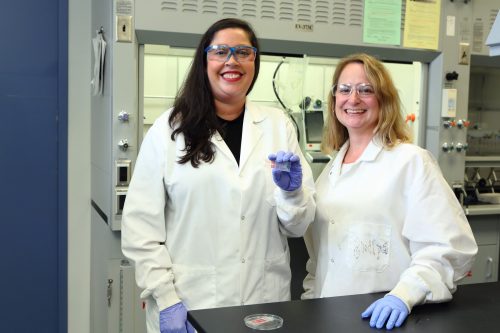New biomarker offers hope for earlier ovarian cancer detection
Story

Ovarian cancer is often difficult to detect early due to a lack of significant symptoms until advanced stages. A study published in Molecular & Cellular Proteomics by UIC faculty identified a new biomarker, cystatin A, which could enable earlier detection through routine screenings, potentially even at home.
While biomarker studies often seek signs of tumor DNA in blood, project collaborators and former CCTS pilot awardees Joanna Burdette, Laura Sanchez and Stephanie Cologna instead looked to the microenvironment near potential tumors.
“I think that’s going to be a very important thing to think about because if we want to detect tumors early, they should be small, maybe even so small that they wouldn’t be detectable if you were just looking for the cancer cell,” said Burdette, who is also a member of the University of Illinois Cancer Center. “But if you look in the environment around the tumor, the immune system, bacteria and other things responding to it, that might be a more robust signal that we could detect earlier.”